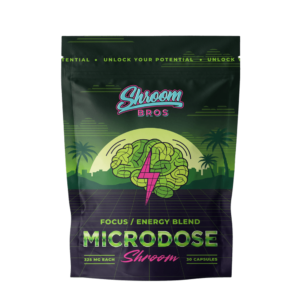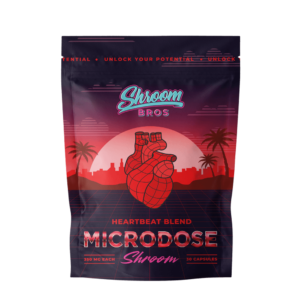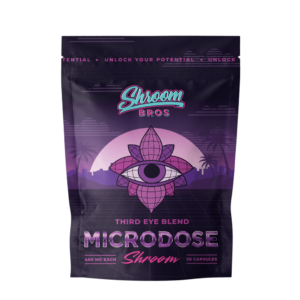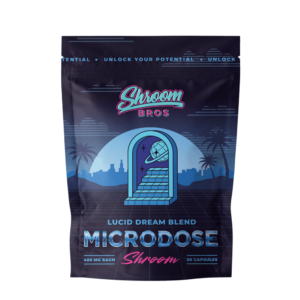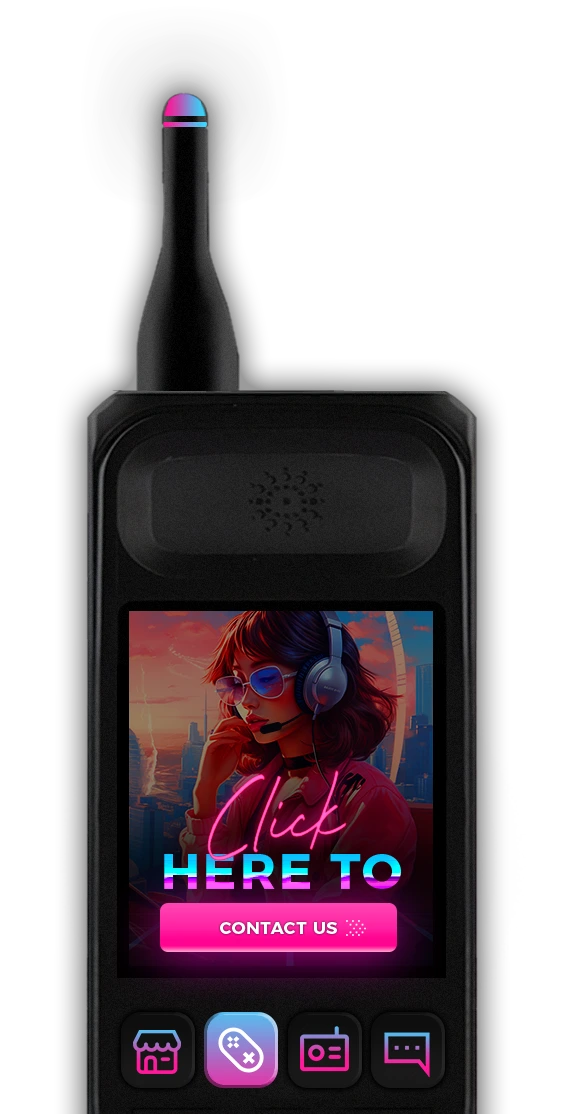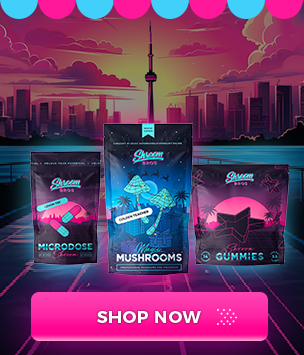Microdosing magic mushrooms, or consuming sub-perceptual doses of psilocybin, has garnered significant attention for its potential health benefits. Unlike full doses that lead to intense psychedelic experiences, microdosing involves taking about 1/10th to 1/20th of a recreational dose, enough to produce subtle effects without hallucinations. This practice has surged in popularity, particularly among individuals seeking mental health benefits, enhanced creativity, and improved cognitive function. This article explores the myriad ways microdosing magic mushrooms can be beneficial, supported by scientific studies and anecdotal evidence.
Introduction to Microdosing
Microdosing involves regularly consuming very small amounts of a psychedelic substance, typically every few days. The concept, popularized by Dr. James Fadiman’s 2011 book, “The Psychedelic Explorer’s Guide,” suggests that these minuscule doses can improve mental and physical well-being without the intense effects associated with larger doses. This practice, while still somewhat controversial, is becoming increasingly mainstream as more people report positive experiences and research begins to validate these claims.
Historical Context
Psilocybin, the active compound in magic mushrooms, has been used for centuries in various cultures for religious and healing purposes. Indigenous tribes in Mesoamerica have used these mushrooms in their rituals, valuing their profound effects on consciousness and spirituality. In the mid-20th century, Western science began exploring psilocybin’s potential, leading to numerous studies on its therapeutic benefits. However, due to the stigmatization and legal restrictions that followed, research was halted for several decades, only to experience a resurgence in recent years as societal attitudes towards psychedelics shift.
Enhancing Creativity and Productivity
Creativity Enhancement
One of the most celebrated benefits of microdosing magic mushrooms is its impact on creativity and productivity. Users report enhanced creative thinking, problem-solving abilities, and increased productivity. A study published in the journal “Psychopharmacology” found that low doses of psychedelics could enhance divergent thinking, a key component of creativity. This study aligns with anecdotal reports from individuals in creative fields who microdose to break through creative blocks and generate novel ideas.
Productivity and Focus
In addition to boosting creativity, microdosing is reported to improve focus and productivity. Professionals from various sectors, including technology and the arts, use microdosing to enhance their ability to concentrate on complex tasks, maintain prolonged periods of productivity, and stay motivated. A survey conducted by the Beckley Foundation indicated that microdosing could lead to a more structured and effective work routine, helping individuals achieve their professional goals more efficiently.
Try Our Very Popular Focus/Energy Microdose Capsules!
Improving Mental Health
Reducing Anxiety and Depression
Microdosing has shown promise in alleviating symptoms of anxiety and depression. A 2019 study by Polito and Stevenson published in “PLOS ONE” found that individuals who microdosed reported lower levels of depression and stress. The mechanism behind this effect is believed to be related to psilocybin’s ability to increase neuroplasticity and promote the growth of new neural connections, as shown in a study by the Beckley Foundation. This ability to create new neural pathways can help “reset” the brain, leading to long-lasting changes in mood and outlook.
Enhancing Mood and Emotional Well-being
Regular microdosing has been linked to improved mood and emotional stability. Participants in various studies and self-reported surveys have noted a general uplift in their mood, reduced irritability, and a greater sense of well-being. These effects are believed to stem from psilocybin’s interaction with serotonin receptors in the brain, which play a critical role in regulating mood. The increase in serotonin activity can result in a more balanced and positive emotional state, contributing to overall mental health.
Boosting Cognitive Function
Cognitive Flexibility
Microdosing can also enhance cognitive function, including improved focus, concentration, and mental clarity. A study conducted by Prochazkova et al. and published in the “Journal of Psychopharmacology” in 2018 found that microdosing could improve cognitive flexibility, which is the brain’s ability to switch between thinking about different concepts or to think about multiple concepts simultaneously. This cognitive enhancement is particularly beneficial for tasks requiring sustained attention and creative problem-solving.
Memory and Learning
Furthermore, microdosing may positively affect memory and learning. Psilocybin has been shown to facilitate the growth of new neurons and strengthen synaptic connections, essential for memory formation and retention. This neurogenesis can lead to improved learning capabilities, making it easier to acquire and recall new information.
Physical Health Benefits
Reducing Inflammation
Emerging research suggests that psilocybin may have anti-inflammatory properties. Chronic inflammation is linked to a range of health issues, including autoimmune diseases, cardiovascular disease, and neurodegenerative disorders. By potentially reducing inflammation, microdosing psilocybin could contribute to overall physical health and longevity. The anti-inflammatory effects of psilocybin could also help in managing chronic pain conditions, providing a natural alternative to traditional pain management strategies.
Enhancing Physical Performance
Some users report enhanced physical performance and endurance when microdosing. While scientific evidence in this area is still emerging, the anecdotal experiences suggest that microdosing can increase motivation and reduce fatigue, which can be beneficial for physical activities. Athletes and fitness enthusiasts have noted improvements in their training sessions, citing increased energy levels and faster recovery times.
Give Our Awesome Heartbeat Blend Microdose Capsules A Try!
Promoting Neurogenesis and Neuroplasticity
Psilocybin has been shown to promote neurogenesis (the growth of new neurons) and neuroplasticity (the brain’s ability to reorganize itself by forming new neural connections). A 2016 study by Catlow et al. published in “Experimental Brain Research” demonstrated that psilocybin could stimulate neurogenesis in the hippocampus, an area of the brain crucial for learning and memory. This property is particularly promising for treating conditions like depression, PTSD, and Alzheimer’s disease, where neuroplasticity is often impaired.
Enhancing Spiritual and Personal Growth
Microdosing can also facilitate spiritual and personal growth. Many users report a heightened sense of connection to themselves, others, and the universe. This sense of interconnectedness can foster greater empathy, compassion, and a deeper understanding of one’s purpose in life. These experiences, while subtle, can lead to profound personal transformations over time. Enhanced introspection and a deeper sense of meaning are often cited as significant benefits, contributing to an overall sense of fulfillment and happiness.
Supporting Addiction Recovery
Emerging evidence suggests that psilocybin could be beneficial in treating addiction. A study published in “The Journal of Psychopharmacology” in 2015 found that psilocybin-assisted therapy significantly improved abstinence rates in individuals with alcohol dependence. Microdosing, by promoting neuroplasticity and enhancing mood, may support individuals in breaking free from addictive behaviors and developing healthier habits. The potential of microdosing in addiction therapy could revolutionize current treatment approaches, offering a new pathway to recovery
Practical Considerations for Microdosing
Dosage and Frequency
Finding the right dosage is crucial for effective microdosing. The typical microdose ranges from 0.1 to 0.3 grams of dried magic mushrooms, taken every three to four days. It’s important to start with a lower dose and gradually adjust based on individual response. The goal is to find a dose that produces noticeable improvements in well-being without causing perceptual changes.
Safety and Preparation
Ensuring the quality and purity of the mushrooms is essential. It’s recommended to obtain them from a reliable source and to be mindful of potential interactions with other medications. Consulting with a healthcare provider before starting a microdosing regimen is advisable, especially for individuals with underlying health conditions. Proper preparation and storage are also important to maintain the mushrooms’ potency and safety.
Tracking and Adjusting
Keeping a journal to track the effects of microdosing can help in fine-tuning the dosage and frequency. Noting changes in mood, cognitive function, and overall well-being can provide valuable insights into how microdosing is impacting one’s life. This practice allows individuals to identify patterns and make informed adjustments to their regimen.
Personal Anecdotes and Case Studies
The growing body of anecdotal evidence highlights the diverse benefits of microdosing. Many individuals have shared their experiences of enhanced creativity, improved mental health, and personal growth. These personal stories, while subjective, provide a compelling narrative that complements scientific research. Case studies often reveal the profound impact microdosing can have on individual lives, offering hope and inspiration to others considering this practice.
Potential Challenges and Considerations
While microdosing has numerous potential benefits, it’s important to acknowledge the challenges and considerations. Individual responses to psilocybin can vary, and not everyone may experience the same positive effects. Additionally, the long-term effects of regular microdosing are still not fully understood, necessitating further research. There is also the risk of developing a psychological dependency on the practice, although this is generally considered low.
Future Directions and Research
The field of psychedelic research is rapidly evolving, with numerous ongoing studies exploring the therapeutic potential of microdosing. As scientific interest grows, more robust clinical trials are expected to provide deeper insights into the mechanisms and benefits of microdosing magic mushrooms. This research will be crucial in validating anecdotal reports and expanding our understanding of psilocybin’s effects on the human brain and body. Future studies may also explore the long-term effects of microdosing, providing a more comprehensive understanding of its safety and efficacy.
Broader Implications for Society
The potential benefits of microdosing magic mushrooms extend beyond individual health and well-being. If validated by further research, microdosing could have significant implications for public health, mental health care, and even productivity in the workplace. The integration of microdosing into mainstream health practices could lead to more innovative and effective approaches to treating a wide range of conditions.
Integrating Microdosing into Daily Life
For those considering microdosing, integrating this practice into daily life involves careful planning and mindful reflection. Establishing a routine, setting clear intentions, and monitoring progress are key steps to ensure a positive experience. Community support and sharing experiences with others can also provide valuable insights and encouragement.
Ethical and Environmental Considerations
As interest in microdosing grows, it’s important to consider the ethical and environmental impacts. Sustainable sourcing of magic mushrooms and promoting responsible use are essential to protect natural ecosystems and ensure the well-being of all individuals involved. Advocating for ethical practices and environmental stewardship can help create a more sustainable and equitable approach to psychedelic use.
Conclusion
Microdosing magic mushrooms offers a promising avenue for enhancing mental health, creativity, cognitive function, and overall well-being. Supported by both scientific research and anecdotal evidence, this practice holds the potential to revolutionize our approach to mental and physical health. As research continues to unfold, microdosing may become a widely accepted and valued tool for personal growth and healing.
By integrating microdosing into a holistic approach to well-being, individuals can tap into the profound benefits of psilocybin, fostering a deeper connection to themselves and the world around them. As we continue to explore the potential of this ancient medicine, microdosing stands as a beacon of hope in the quest for mental and emotional wellness.
The journey of exploring microdosing is both personal and transformative. As more people share their stories and as science continues to uncover the mysteries of psilocybin, we move closer to a future where microdosing is recognized not only for its therapeutic potential but also for its capacity to enhance the human experience in profound and meaningful ways.
References
- Polito, V., & Stevenson, R. J. (2019). A systematic study of microdosing psychedelics. PLOS ONE, 14(2), e0211023.
- Prochazkova, L., Lippelt, D. P., Colzato, L. S., Kuchar, M., & Hommel, B. (2018). Exploring the effect of microdosing psychedelics on creativity in an open-label natural setting. Psychopharmacology, 235(12), 3401-3413.
- Catlow, B. J., Song, S., Paredes, D. A., Kirstein, C. L., & Sanchez-Ramos, J. (2016). Effects of psilocybin on hippocampal neurogenesis and extinction of trace fear conditioning. Experimental Brain Research, 235(3), 2485-2493.
- Johnson, M. W., Garcia-Romeu, A., & Griffiths, R. R. (2017). Long-term follow-up of psilocybin-facilitated smoking cessation. The American Journal of Drug and Alcohol Abuse, 43(1), 55-60.
- Bogenschutz, M. P., Forcehimes, A. A., Pommy, J. A., Wilcox, C. E., Barbosa, P. C., & Strassman, R. J. (2015). Psilocybin-assisted treatment for alcohol dependence: A proof-of-concept study. Journal of Psychopharmacology, 29(3), 289-299.
